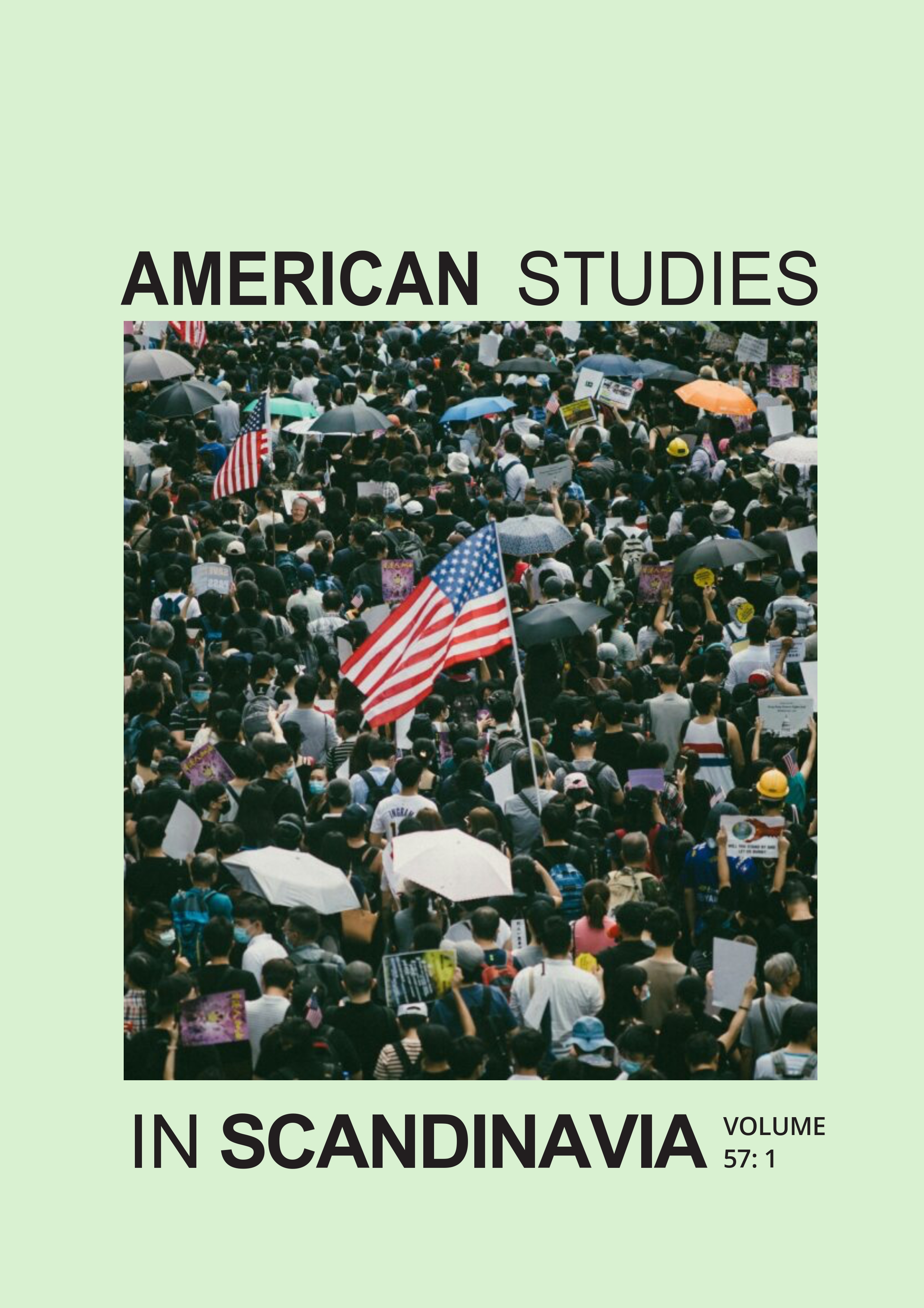The Transformative Power of Love in John Williams's Stoner
Keywords:
love, literature, saturated phenomenon, the lover's advance, lifeAbstract
This article examines the transformative power of love demonstrated by Stoner’s life in John Williams’s Stoner. Drawing on Jean-Luc Marion’s phenomenology of love, the essay contends that Stoner’s life, driven by love, is far from a failure. Stoner’s falling in love with literature can be seen as what Marion calls a “saturated phenomenon” in that it makes him transcend himself and have his being defined in relation to the alterity of the other. Stoner’s relationship with Katherine Driscoll is significant because it helps to resolve the separation of the mind and the senses caused by his love for literature. Through his relationship with Katherine, in which lust and learning become one process, Stoner recognizes love as an ongoing, continual process that involves the dynamic power of time. Realizing that he has given love to every moment of his life, he gives love even to his moment of death, which ironically becomes the most important moment of his celebration of life. Through his book, he seeks to continue to love loving beyond the moment of death and thereby defy death and non-being.References
Abdeni-Holman, Emily. “‘Life’ in John Williams’s Stoner.” Philosophy and Literature, vol. 45, no. 1, 2021, pp. 138-56. https://doi.org/10.1353/phl.2021.0009.
Agarwal, Megha. “Chance Encounters with Literature, Language and Meaning in John Williams’ Stoner and Eva Hoffman’s Lost in Translation: A Life in a New Language.” Comparative Critical Studies, vol. 18, no. 2-3, 2021, pp. 145-63. https://doi.org/10.3366/ccs.2021.0400.
Barthes, Roland. A Lover’s Discourse: Fragments. Hill and Wang, 1978.
Brann, Eva. What, Then, Is Time? Rowman & Littlefield, 1999.
Clark, Maureen. “Listen to the Sound of the Quiet American: John Williams’s Stoner.” Orbit: A Journal of American Literature, vol. 5, no. 2, 2017, pp. 1-24. https://doi.org/10.16995/orbit.210.
Dillon, M. C. “Toward a Phenomenology of Love and Sexuality: An Inquiry into the Limits of the Human Situation As They Condition Loving.” Soundings: An Interdisciplinary Journal, vol. 63, no. 4, 1980, pp. 341-60.
Fadillah, Umi Nur. “Existentialism as Portrayed in Stoner.” Poetika, vol. 10, no. 2, 2022, pp. 151-60. https://doi.org/10.22146/poetika.v10i2.76410.
Falke, Cassandra. The Phenomenology of Love and Reading. Bloomsbury Academic, 2017.
Gåvertsson, Frits. “Platonic Perfectionism in John Williams’ Stoner.” SATS, vol. 21, no. 1, 2020, pp. 39-60. https://doi.org/10.1515/sats-2019-0028.
Habash, Gabe. “A ‘Perfect’ American Novel Strikes Gold Overseas.” Publishers Weekly 27 April 2013, https://www.publishersweekly.com/pw/by-topic/international/international-book-news/article/56997-a-perfect-american-novel-strikes-gold-overseas.html.
Hintikka, Jaakko. “The Notion of Intuition in Husserl.” Revue Internationale de Philosophie, vol. 57, no. 224, 2003, pp. 169-91. https://doi.org/10.3917/rip.224.0057.
Livatino, Mel. “Revaluation: A Sadness unto the Bone: John Williams’s Stoner.” Sewanee Review, vol. 118, no. 3, 2010, pp. 417-22. https://doi.org/10.1353/sew.2010.0008.
Marion, Jean-Luc. The Erotic Phenomenon. Translated by Stephen E. Lewis, University of Chicago Press, 2006.
Martin, Diana. “Stoner.” American Journal of Psychiatry, vol. 167, no. 12, 2010, pp. 1537-78. https://doi.org/10.1176/appi.ajp.2010.10081226.
McGravey, Michael J. Navigating Postmodern Theology: Insights from Jean-Luc Marion and Gianni Vattimo’s Philosophy, Lexington Books/Fortress Academic, 2023. https://doi.org/10.5771/9781978714359.
McKenna, Tony. Art, Literature and Culture from a Marxist Perspective. Palgrave Macmillan, 2015. https://doi.org/10.1057/9781137526618.
Mewshaw, Michael. “John Williams and Stoner.” South Central Review, vol. 32, no. 2, 2015, pp. 17-20. https://doi.org/10.1353/scr.2015.0018.
Mitchell, Lee Clark. “John Williams’s Transformative Style in Stoner.” Raritan, vol. 37, no. 4, 2018, pp. 139-59.
Moran, Richard. “Iris Murdoch and Existentialism.” The Philosophical Imagination: Selected Essays, Oxford University Press, 2017, pp. 169-84. https://doi.org/10.1093/acprof:oso/9780190633776.003.0010.
Moseley, Merrit. “Introduction: Definitions and Justifications.” The Academic Novel: New and Classic Essays. Edited by Merrit Moseley, Chester Academic Press, 2007, pp. 3-19.
Murdoch, Iris. The Sovereignty of the Good. Routledge, 1970.
Rowcroft, Andrew. “Towards a Politics of Failure: John Williams’ Stoner (1965) and Butcher’s Crossing (1960).” Intersections, vol. 21, 2018, pp. 1-25.
Sperber, Michael. “Williams’ Stoner: Guilt, Shakespeare, Sisyphus, and the Non-Thriving Survivor.” Psychiatric Times, vol. 31, no. 6, 2014, pp. 1-4.
Williams, John. Stoner. Vintage, 2012.
Wrethed, Joakim. “John Williams’s Stoner and Literature as Dark Matter in the Age of Educational Managerialism.” Hungarian Journal of English and American Studies, vol. 25, no. 1, 2019, pp. 151-60.
Yang, Lorraine Zhenping. The University in Fictions: Reading, Aesthetic Education and the Campus Novel. 2022. University of Leeds, PhD dissertation.
Downloads
Published
How to Cite
Issue
Section
License
Copyright (c) 2025 Kyoung-Min Han, Yonghwa Lee

This work is licensed under a Creative Commons Attribution-NonCommercial-NoDerivatives 4.0 International License.



